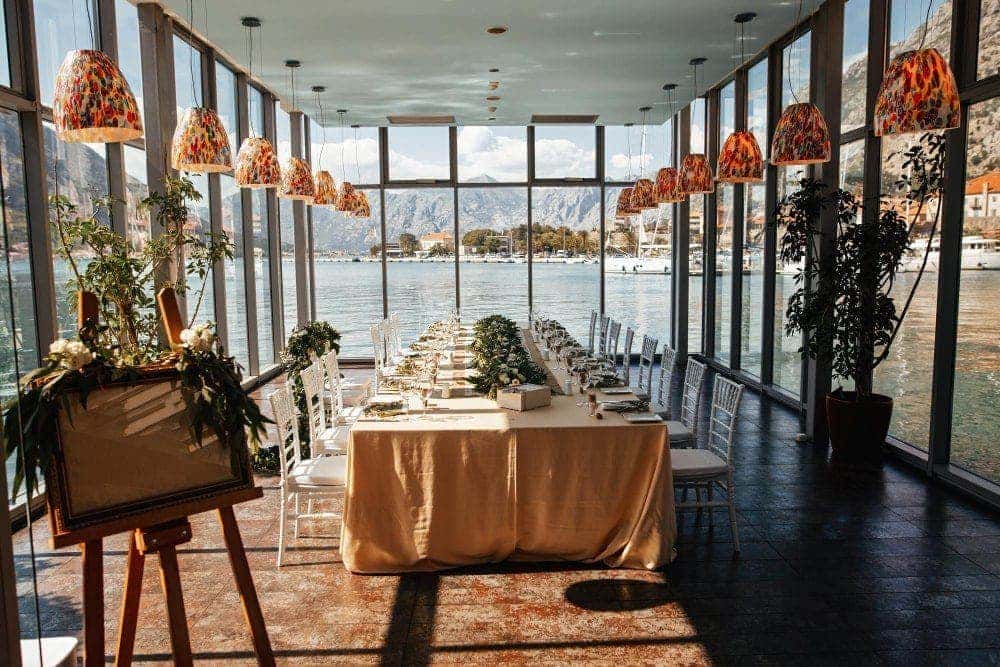
The Ultimate Guide to Renting a Venue for Your Event
Welcome to our comprehensive guide to event venue rental! Whether you're planning a wedding, corporate seminar, or birthday party, finding the perfect venue is a crucial step in ensuring a successful and memorable occasion. But how much will renting a venue cost you?
In this article, we will dive deep into the world of venue rentals and explore everything you need to know about their costs and considerations. From hidden fees to negotiation tactics, we've got you covered.
Join us as we embark on this journey to unravel the mysteries behind venue costs and empower you to find the perfect space for your event without breaking the bank. Let's get started!
I. Factors That Affect Costs of Renting a Venue
We understand that budgeting is a critical factor when it comes to planning any event, so we will break down the various cost components that can impact your overall venue expenses. You'll gain valuable insights into factors such as location, size, amenities, and seasonality that can influence pricing. Understanding these factors will help you budget effectively and make informed decisions.
Key factors that affect costs for renting a venue:
- Location: Looking to rent a venue in a prime location? The venue's location significantly influences rental costs. Prime spots or popular destinations often command higher prices compared to less sought-after areas. Consider guest convenience and accessibility when selecting the venue's location.
- Size: The size of the venue directly impacts the rental of venue fee. Larger venues with greater capacity typically incur higher costs than smaller spaces. Accurately estimating your expected number of guests is essential for selecting a venue that can comfortably accommodate everyone.
- Amenities: How much does it cost to rent a venue with additional amenities? Venues offering additional amenities such as sound systems, lighting equipment, tables, chairs, and catering services may come at a higher price. Consider the amenities you require for your event and factor in their costs when budgeting for the venue rental.
- Seasonality: Wondering how much does it cost to rent a wedding venue during peak season? Seasonal fluctuations significantly impact venue rental costs. High-demand periods, such as holidays or wedding seasons, often entail inflated prices. Consider scheduling your event during off-peak times to potentially save on rental expenses.
- Day of the week and time of day: The day of the week and time of day you choose to host your event can also affect the rental costs. Weekends and evenings are generally more expensive compared to weekdays or daytime events. Consider scheduling your event during non-peak hours to potentially secure a better deal.
Now that we have explored the factors that can influence venue rental costs, let's take a closer look at the different types of venues and their associated costs.

II. Traditional Types of Venues and their Associated Costs
Venues come in all shapes and sizes, each offering unique features and ambiance. The type of venue you decide can significantly impact the rental costs. Here are some common types of venues and their associated costs:
- Hotels and Resorts: Considering renting a venue for a party at a hotel or resort? These establishments offer a diverse range of event spaces, from lavish ballrooms to intimate conference rooms. Rental costs vary based on factors such as location, venue size, and available services and amenities.
- Conference Centers: Conference centers are designed specifically for hosting conferences, seminars, and large corporate events. They usually offer state-of-the-art facilities, including audiovisual equipment, meeting rooms, and breakout areas. The rental costs for conference centers depend on factors such as location, size, and the services included.
- Banquet Halls: Banquet halls are popular choices for weddings and formal events. These venues often come with elegant decor, catering services, and audiovisual equipment. The rental costs for banquet halls can vary significantly depending on the location, size, and amenities provided.
- Restaurants: Many restaurants offer private event spaces that can be rented for parties and gatherings. The rental costs for restaurant venues depend on factors such as the restaurant's reputation, location, and the services and amenities included. Upscale restaurants tend to charge higher rental fees compared to casual dining establishments.
- Outdoor Spaces: Outdoor venues, such as gardens, parks, and rooftops, can provide a unique and picturesque setting for events. The rental costs for outdoor spaces may vary depending on factors such as the location, size, and any additional services or amenities provided. It's important to consider the weather and have backup plans in case of inclement conditions.
Now that we have explored the different types of venues and their associated costs, let's delve into additional expenses to consider when renting a venue.
III. Alternative Options to Traditional Venue Rental
While traditional venues are popular choices for events, there are alternative options available that may better suit your needs and budget. Here are some alternative venue options to consider:
- Community Centers and Parks: Community centers and parks offer affordable venue rental options for events such as weddings, birthday parties, and community gatherings. These spaces often provide a relaxed and communal atmosphere, perfect for casual events.
- Private Homes and Estates: Renting a private home or estate can provide an intimate and unique setting for your event. Whether you're hosting a small wedding or a family reunion, a private residence offers privacy and flexibility to customize your event.
- Cultural and Historical Sites: Many cultural and historical sites offer event rental options, allowing you to host your event in a unique and memorable location. From museums and art galleries to historic landmarks, these venues offer a one-of-a-kind backdrop for your event.
- Coworking Spaces and Creative Studios: For corporate events or meetings, consider renting a coworking space or creative studio. These venues offer modern amenities and flexible layouts, making them ideal for workshops, seminars, and team-building activities.
- Virtual and Hybrid Events: In light of recent developments, virtual and hybrid events have become increasingly popular. Consider hosting your event online or incorporating virtual elements into your in-person gathering to reach a wider audience and accommodate remote attendees.
By exploring these alternative venue options, you can find a unique and cost-effective solution that suits your event's needs. Now, let's conclude our guide to renting a venue for your event.

IV. Additional Expenses to Consider When Renting a Venue
When budgeting for a venue rental, it's crucial to consider additional expenses beyond the basic rental fee. These expenses can add up and significantly impact your overall budget. Here are some additional expenses to keep in mind:
- Security and Insurance: Considering how much does it cost to rent a venue inclusive of security and insurance? Some venues mandate hiring security personnel or acquiring event insurance, essential for guest safety and liability protection.
- Catering and Bar Services: If the venue does not provide catering and bar services, you'll need to budget for these separately. Consider the cost per person for catering and any additional fees for bar setup, bartenders, and alcohol.
- Decorations and Rentals: Depending on the venue's aesthetics and your event's theme, you may need to budget for decorations and rentals such as linens, tableware, chairs, and lighting. These costs can vary depending on the level of customization and the quality of the items you choose.
- Parking and Transportation: If the venue does not offer sufficient parking or is not easily accessible by public transportation, you may need to budget for additional parking arrangements or transportation services for your guests. Consider the cost of valet services or shuttle buses if needed.
- Cleanup and Damage Deposit: Some venues require a cleanup fee or a refundable damage deposit. These costs are necessary to ensure that the venue is left in good condition after your event. Be sure to clarify any cleanup or damage deposit requirements with the venue management.
By considering these additional expenses, you can create a more comprehensive budget for your event and avoid any unexpected financial surprises. Now, let's move on to some tips for negotiating venue rental prices.
V. How to Find and Compare Options for Renting Spaces for Events
Embarking on the search for the perfect venue for your event? Here's how to navigate the process effectively:
- Define Your Requirements: Begin by outlining your event's specific needs and budget. Are you renting a venue for events indoors or outdoors? What amenities do you require, such as catering or audiovisual equipment? Knowing your criteria will streamline your search.
- Utilize Online Resources: Tap into online venue marketplaces to browse a wide range of options and compare prices and amenities. Filter your search based on location, capacity, and budget to narrow down your choices.
- Seek Recommendations: Reach out to event planners, local vendors, friends, and colleagues for venue recommendations. Their insights and experiences can offer valuable guidance in selecting the right venue for your event.
- Schedule Site Visits: Once you've compiled a list of potential venues, schedule in-person visits to assess each space's suitability. Take note of the layout, ambiance, and accessibility, and inquire about rental policies and additional fees.
By carefully evaluating and comparing venue options based on your event's requirements, you'll be equipped to make an informed decision that aligns with your vision and budget. Now, let's explore the importance of rental contracts and agreements in securing your chosen venue.
VI. Venue Rental Contracts and Agreements
When finalizing your venue rental, it's crucial to establish a clear and comprehensive rental contract or agreement. This document outlines the terms and conditions of your rental, providing clarity for both parties involved. Here's why having a solid rental agreement is essential:
- Define Terms and Conditions: A rental contract specifies important details such as the dates, times, and duration of your event, as well as any additional services or amenities included in the rental package. By clearly defining these terms, you can avoid misunderstandings or disputes later on.
- Clarify Financial Obligations: The contract should outline the rental fee, payment schedule, and any additional charges or fees. This helps ensure transparency and accountability regarding financial obligations, preventing any unexpected costs from arising.
- Establish Liability and Insurance: Venue rental agreements typically include provisions regarding liability coverage, security deposits, and insurance requirements. These clauses protect both parties in the event of property damage, accidents, or other unforeseen circumstances.
- Address Cancellation Policies: It's essential to understand the venue's cancellation policy and any associated fees or penalties. A well-defined cancellation policy protects both the venue and the renter in case of unforeseen changes or cancellations.
- Include Special Requests or Modifications: If you have specific requests or modifications to the rental agreement, be sure to document them in writing. This ensures that both parties are aware of any special arrangements and can adjust the contract accordingly.
By having a clear and comprehensive venue rental contract in place, you can minimize the risk of misunderstandings and ensure that your event proceeds smoothly. Now, let's explore some alternative options to traditional venue rentals.

VII. Are you Ready to Bring your Event to Life?
With countless options for venue rentals, the task can feel overwhelming. But fear not, with the assistance of Timely resources, you'll be launching your event with ease.
Unlock the power of Timely event management software to seamlessly plan, promote and execute your next event. From publishing events and collecting online registrations to communicating with attendees and confirming their attendance, Timely provides the essential tools and expert guidance you need.
Maximize event promotion with customizable features, streamline ticketing and registration processes, and ensure every aspect of your event runs smoothly. Let's embark on the journey to make your event a resounding success with Timely.
If you have any questions or require further assistance with renting a venue for your events, feel free to reach out.





